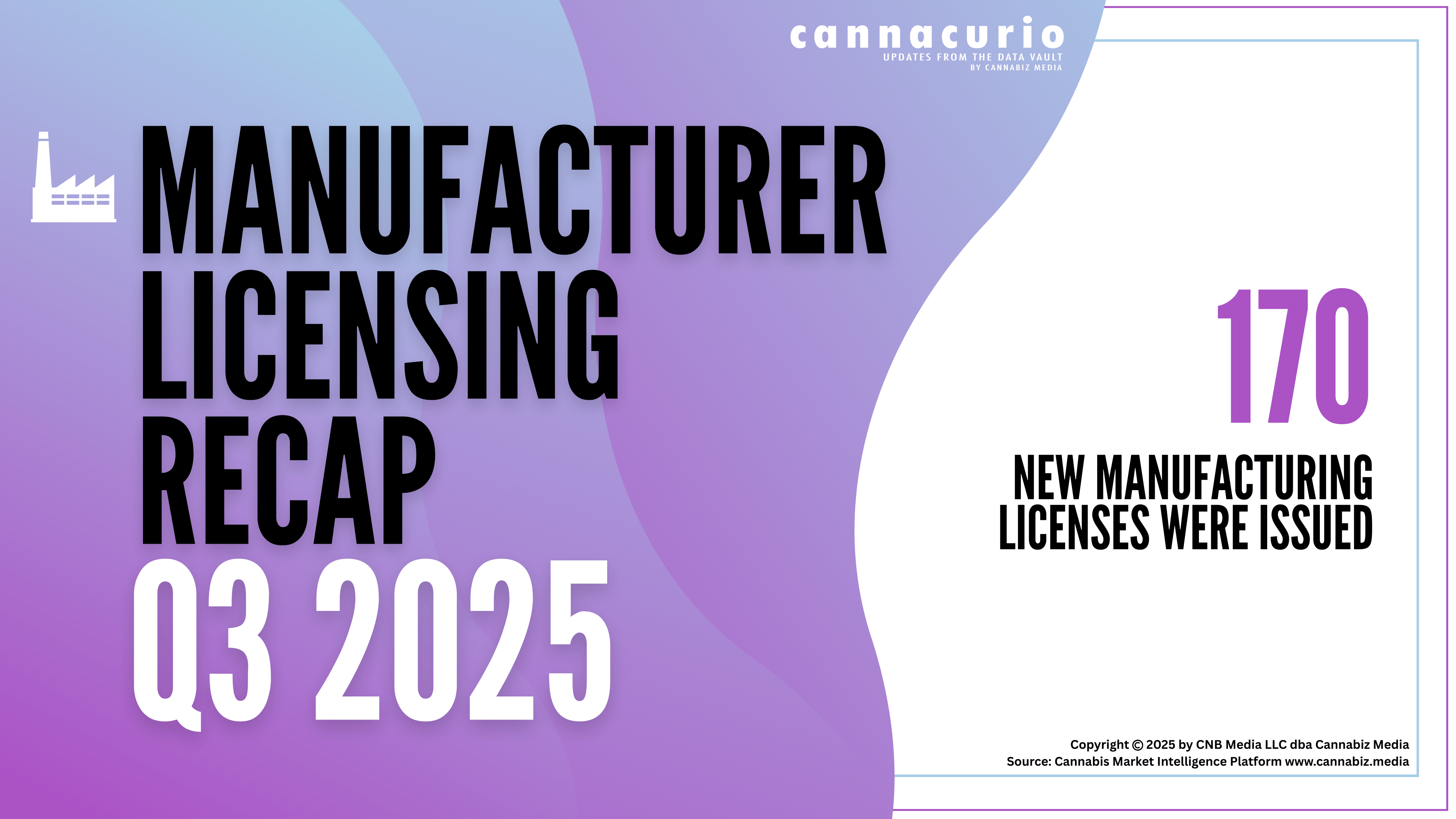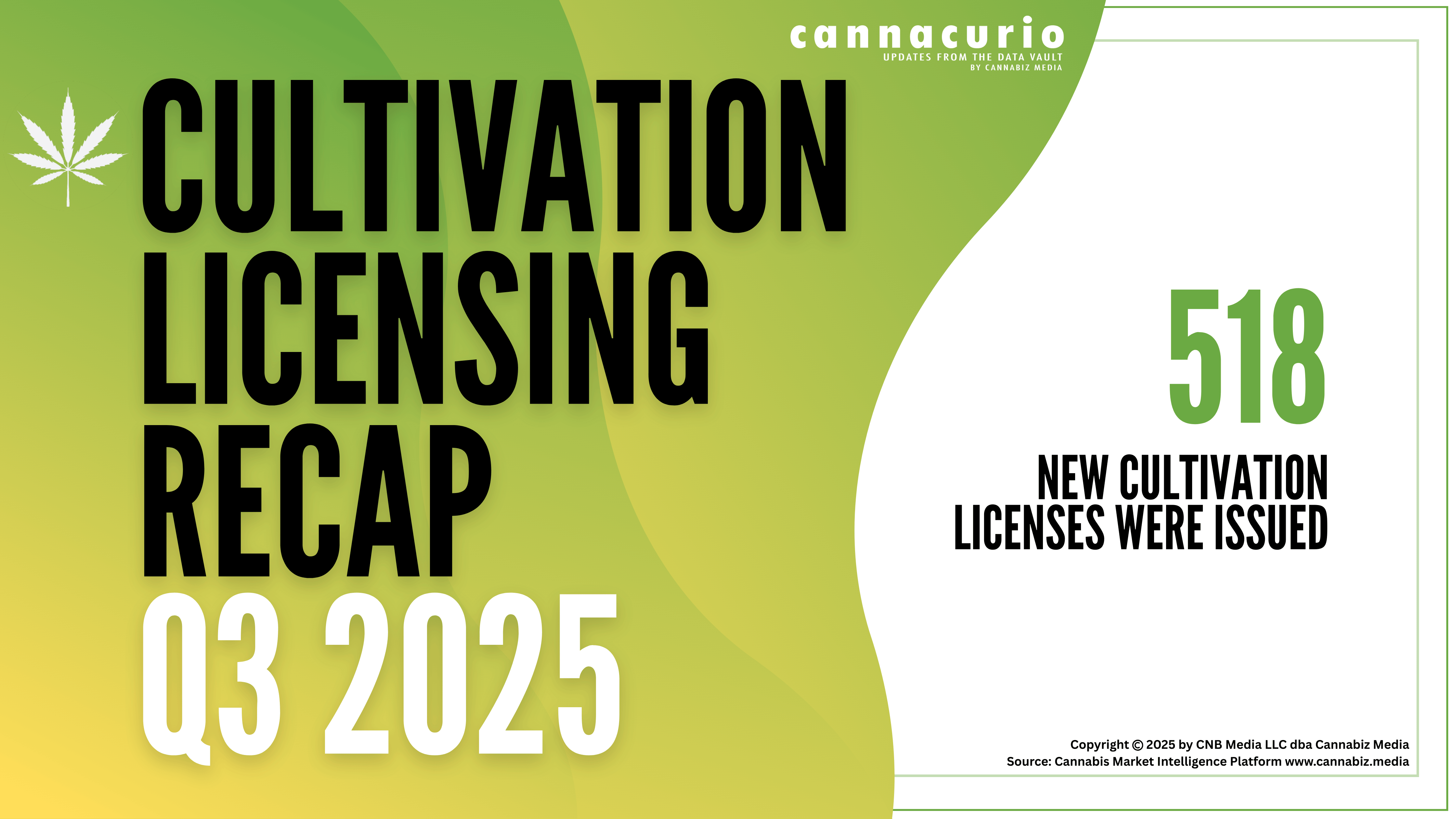
Cannabis Industry Data Challenges and Trends in 2023
Let’s start with a story to demonstrate how far the world has come in the past seven or so years as it relates to accessing and using data, particularly to make business decisions.
About seven years ago, I served on the Industry Advisory Committee for a large university, and during a meeting to discuss future plans for majors and courses, the university representative asked the group of business advisors if we thought the school should offer a data analytics major in the future. I was very surprised to discover at the time that I was the only person among my dozen or so peers at the meeting who strongly advocated for this new major. Fast forward to today, and it would be shocking if a university’s business department did not offer a data analytics program.
Now, think about how many businesses operating in and with the cannabis industry are not effectively collecting and analyzing data on a daily basis to improve operations, marketing, sales, revenue, and every other aspect of their businesses. Is yours?
The point is your business needs to prioritize data today in order to survive and thrive in the future. Don’t be the university that didn’t realize what the future would hold.
With that said, for businesses, the data topic is about more than just using data. It’s about being a data-driven company – one that will actually gain a competitive advantage and win in your market in the future.
A data-driven company relies on data to inform the entire decision-making process. When you rely on data to make decisions, each decision is validated before you take action, and results are much more likely to be positive.
Benefits of Making Decisions Based on Data
Research shows data-driven companies are 58% more likely to exceed their revenue goals than companies that don’t use data to make decisions. In fact, data-driven decision making delivers numerous benefits that positively effect all parts of your business – from operations to sales.
Some of the key benefits you’ll quickly realize when you adopt a data-driven approach to decision-making include:
- Proactively seize opportunities and thwart threats
- Realize measurable cost savings
- Improve customer retention and reduce churn
- Improve operational processes
- Identify business needs
- Solve problems
- Reduce risk
- Serve your customers better
- Gain market share
- Respond to market changes more quickly
- Predict future trends
Putting these benefits into a real-world perspective, Chris Moyer, Chief Technology Officer at Cannabiz Media, explains, “At Cannabiz Media, we use a combination of real-time data for alerts when anomalies happen, as well as looking back at a long period of data to determine if a feature or idea worked. Putting that in simpler terms, we use data to prove or disprove what we think will be good versus what customers actually need or want.”
For Cannabiz Media, data drives decisions. “For example,” says Chris, “when we launched the Direct Email feature within the Cannabiz Media License Database, we had no idea if subscribers would use it, or if the feature would be complementary or better than the existing email campaigns solution. After a few months, we could see from the data that not only are customers using it, but customers that use Direct Emails also get an average of nearly 80% opens, vs 60% opens for campaigns. We had a theory, we tested it, and the data helped us prove it.”
In other words, the data showed Cannabiz Media that the new feature offered additional use case capabilities for one-to-one outreach, and customers are now able to improve their results by using the right tools for each communication.
Putting all of these benefits together, when you make decisions based on data, your business can gain a competitive advantage and even create a first-mover advantage that will be difficult for competitors to copy or beat.
Cannabis Industry Data Challenges
The cannabis industry to date has focused on rapid growth, but we’ve reached a point in time when businesses need to make a decision. Will they invest in the tools, people, and data they need to grow and scale effectively and profitably in the future, or will they miss the opportunities that data and technology provide to beat the competition?
This is a question that each company’s leaders will need to answer, and to do so, it’s important to understand not just the benefits of data for the cannabis industry but also the challenges.
Access
If your company can’t access the data it needs to make decisions, then your company is likely to fall behind competitors quickly. Therefore, you’ll need to make an investment in the right solutions to collect data and make it usable. These solutions could be internal or external and can give you access to a variety of data from first- to third-person.
For example, you can use the Cannabiz Media License Database to access a wealth of information about cannabis and hemp license holders, companies, and contacts in the United States, Canada, and international markets. If you need data about mergers and acquisitions, financials, point-of-sale software, sales, products, wholesale prices, patient data, and more business intelligence data, you can get it with a subscription to Cannabiz Intelligence™.
Reliability and Timeliness
The data you use to make decisions must be accurate and current, or your decisions could be flawed. In other words, you need high quality data. That means your business needs to use the right technology and work with the right data and software partners to keep all data continuously updated.
Integration
In the cannabis industry, much of the technology that businesses use is fragmented with different data stored in siloed systems. To become a truly data-driven company and reap the benefits that come with it, all of your data and technology needs to be integrated.
Customization
Today, businesses are still trying to adapt technology from other industries to the cannabis industry with varying degrees of success. Certainly, many industry-specific software platforms and technologies have been introduced in the past several years, but more solutions are needed that can be fully customized to the way cannabis industries must operate across the supply chain.
Cost
In an industry where many businesses are struggling to generate adequate revenue to be profitable, it’s difficult to justify investing in technology and data solutions. However, to gain market advantages that will position your business for long-term success, data related technology expenses should be thought of as a cost of doing business, not an optional investment.
Data Trends and Opportunities for Cannabis and Cannabis-Related Businesses
Data collection and analysis today is often inefficient and disjointed. You can expect to see this change in the coming years as data and technology companies focus more attention on developing solutions that integrate and provide a full picture of all data for a cannabis business and market in a single place.
Trends show that further use of automation, artificial intelligence, predictive modeling, and machine learning will boost efficiencies and ultimately, lower costs for businesses that go all in on data and technology. In addition, opportunities to own the full customer relationship and lifecycle and to reduce customer dissatisfaction will improve retention and loyalty. Data will also help businesses identify new sales and growth opportunities.
For example, subscribers to the Cannabiz Media License Database can identify target customers and market opportunities down to the city level and track them across the buying cycle using the built-in email marketing and sales tools. The growing importance of data in the cannabis industry is one of the main reasons Cannabiz Media launched its Email Success Academy, particularly the Email Marketing Data and Lead Scoring Specialist Certification course.
Data will also improve operational inefficiencies, optimize supply chains, discover new product opportunities, protect companies from data loss and cyber threats, and improve compliance. The list of opportunities goes on and on, and the growing trend that shows how important data is to all businesses won’t reverse.
Of course, balancing the need for quality data with privacy regulation compliance will continue to be a top priority, but there are solutions to privacy-related challenges today and in the future.
Chris Moyer shares, “Gathering data is the most important aspect of our business at Cannabiz Media. We needed to make sure we capture enough data to answer the questions we have about our business. It's a fine line to walk to make sure we gather enough data to be useful internally but not so much that we're invading user privacy. Fortunately, using concepts like user-data anonymization and metadata collection help.”
Bottom-line, data is essential for businesses today and in the future. While challenges exist – and new challenges will inevitably arise – your company can overcome obstacles to become data-driven.
Key Takeaways about Cannabis Industry Data Challenges and Trends in 2023
Data-driven companies are more agile and can quickly adapt as the cannabis industry continues to evolve. In addition, they can identify opportunities and gain significant competitive advantages that will help them succeed in the future. Now is the time to prioritize data-driven decision-making for every cannabis and cannabis-related business.
If your company sells to cannabis and hemp license holders and you want to gain a competitive advantage using data, schedule a demo to see how the Cannabiz Media License Database and Cannabiz Intelligence can help you do it.

.png)

